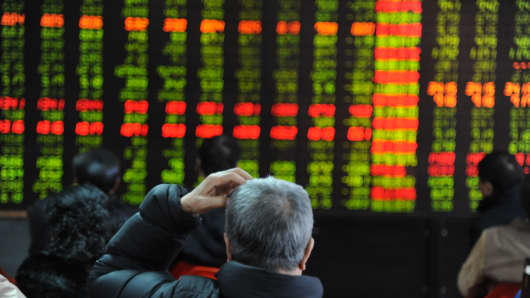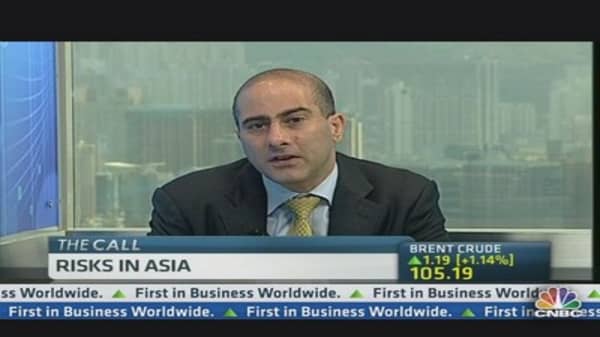Goldman Sachs, which started the year upbeat on the outlook for Chinese stocks, significantly slashed its target for the country's equities late Tuesday, citing deleveraging in the economy and the risk of hot money outflows in the coming months.
The U.S. investment bank, which sees "no rainbow" ahead for mainland equities, cut its 2013 target for the China Security Index (CS1) 300 by 15 percent to 2,380 from 2,800. The new target represents 8 percent upside over the next six months.
The bank also downgraded its earnings outlook for components on the CSI 300 to earnings per share (EPS) growth of 6 percent from an initial estimate of 10 percent. The CSI 300, which is designed to mirror the performance of stocks traded on the Shanghai and Shenzhen stock exchanges, has a heavy weighting of financial stocks.
(Read More: Is Meltdown in China Stocks About to Get Worse?)
"Despite potential easing in funding costs after the quarter-end, we expect liquidity in the second half of 2013 to see a tightening bias, given the central government's seeming intention to control financial risks by deleveraging, with a higher tolerance for slower growth," strategists at the bank wrote in a report.
In mid-June, interbank lending rates soared to record highs, with the seven day repo rate rising to above 10 percent, compared to an average of 3-4 percent seen over the past year.





